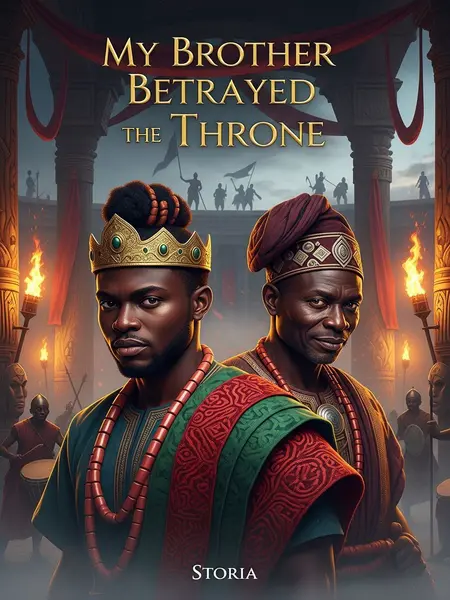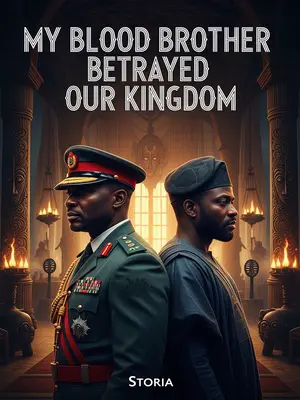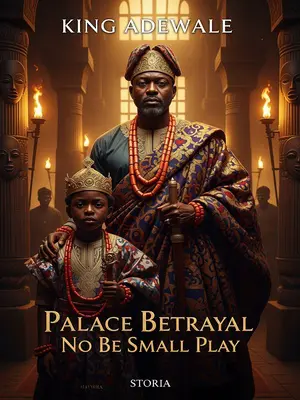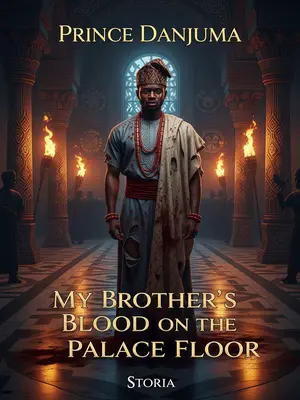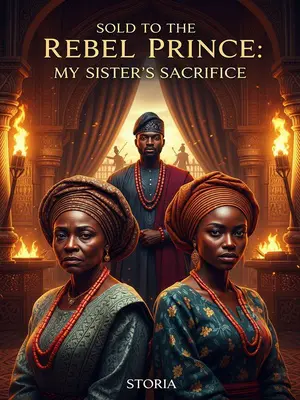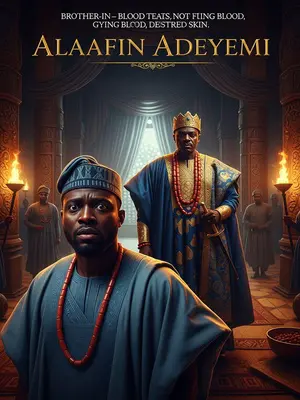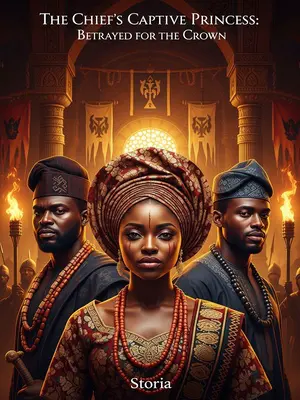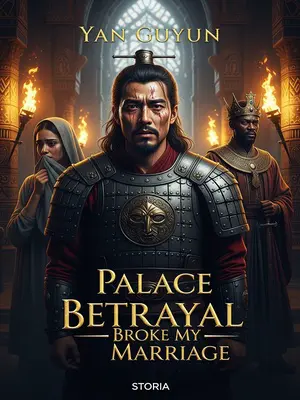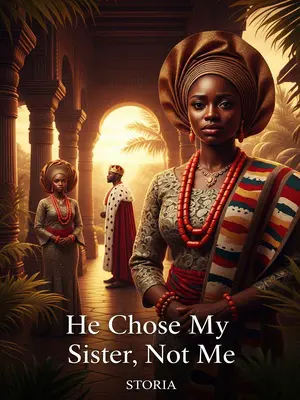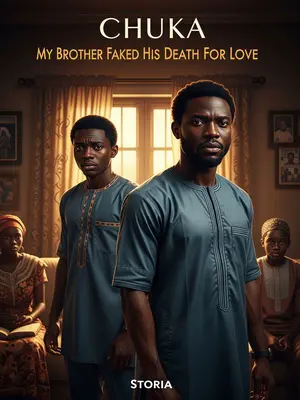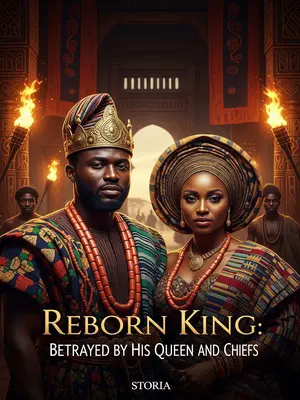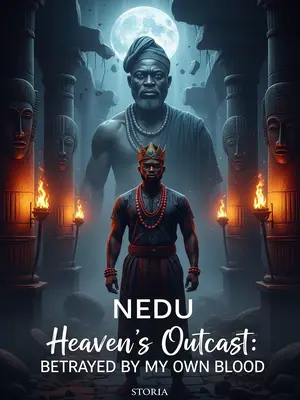Chapter 2: The Warriors and the Old Masquerade
---
## 1830, Rainy Season, July
The sun for rainy season dey burn for sky like say na fire dem dey pour from up. For the main camp at Ajegunle (present-day outskirts of Ibadan), Prince Adeyemi dey inspect his soldiers.
Mosquitoes dey worry person, the muddy smell of wet earth mixing with the scent of boiling yam porridge from the women’s kitchen. The morning was filled with the restless spirit of war, palm-wine sellers hawking around the fringes, while the elders sat under the biggest tree, muttering incantations and tying red cloth round their wrists. "Eledumare, gba wa lowo ogun," they intoned, seeking the favour of the gods. Drummers beat the bata and gangan, their sound weaving with the steady patter of rain as it threatened to fall again.
The Oyo army was a sight: flags flying in the hot breeze, armour shining, weapons sharp well well, and the camp stretching for miles—soldiers full everywhere like flood.
Chants of the oriki of Oyo filled the air, and even the goats tied near the kitchen seemed to sense the tension. Boys ran errands with calabashes of water, old warriors recited prayers, and blacksmiths put final touches on sword and shield. The whole camp was alive, like market day at Kuta.
Adeyemi rode his famous horse, Orunmila—one of the celebrated Six Steeds of Oyo—slowly passing in front of his men. Behind him were his four top commanders, known as the "Four Pillars" of Oyo: Balogun Sikiru, Akinwale the Brave, Chief Oladimeji (whom people called Baba Oja), and Kolapo the Lion.
Orunmila’s hooves kicked dust into the air, and women ululated as the prince passed, their voices echoing pride and hope. Each of his commanders bore marks of their own legend—Balogun Sikiru’s scars were like proverbs on his face; Akinwale wore beads only given after three victories; Baba Oja’s staff rattled with cowries; Kolapo’s eyes shone, as if spirit of Sango dey inside am.
First came Balogun Sikiru, standing tall, his scars telling stories. "Omo, if battle start, make sure you hide behind me," he joked to Akinwale, who just grinned and replied, "Baba, na you go first run!"
Akinwale flexed his arms, beads clicking. "I dey wait for who go try me today," he boasted, earning a side-eye from Baba Oja, who tapped his staff. "Young men with hot blood, na dem dey first shout. Old man like me, I go watch you finish your noise."
Kolapo, never missing a beat, teased Baba Oja: "Old man, make sure your staff no break before battle reach." Baba Oja chuckled, rattling his cowries. "As long as your mouth dey run, my staff go strong."
Every twenty steps, Oyo soldiers would shout together: “Long live Prince Adeyemi!” The voice of fifty thousand people thundered, the ground itself shook.
It was as if the ancestors responded, for the sky itself vibrated. Even birds paused their flight, startled by the living drum of voices. Those too old to fight stood at the back, heads bowed, whispering, "Olorun ma so wa—God protect us."
Adeyemi’s chest was full with confidence. For him, to defeat the enemy ahead was small thing.
His smile was the smile of a man who knew the gods favoured him. With every beat of his heart, his mind replayed the oracles: "You will conquer, but you must not forget humility." He laughed quietly to himself—what was humility when you had the spirit of Oyo behind you?
But reality showed another thing: for this campaign, he would almost die—two times!
Even the strongest man fit taste pepper if him forget say yam wey dey hot for fire fit burn hand. And as the drums faded and the war cries settled, small breeze from the east carried a warning—"No be every day monkey dey jump, e go reach the day e go fall."
---
## 1. The Opponent Dem Dey Call “Old Masquerade”
Adeyemi’s enemy was Chief Okechukwu.
No be small pikin. The man get head wey dey work like trickster in old tales. His name alone dey fear person for that region. If you waka for market and whisper Okechukwu, even stubborn goats fit pause, as if dem sabi the weight of his deeds.
Okechukwu had built a strong base at Umunna, ruling the Middle Belt with his own state he called Umueze. His soldiers feared no one, generals plenty, and he claimed he had the right from the fallen Benin dynasty.
His palace for Umunna be like fortress—walls so thick dem say even arrow no dey enter. Young men from all corners come to serve, hoping to learn war under his shadow. His kitchen never empty, and the griots of the north sing his exploits at every festival.
The year before, the last Oba of Benin, Omooba Eweka, surrendered the throne to Chief Okechukwu.
That day, there was rain that did not stop, as if the heavens wept for Benin. People whispered that with Okechukwu's claim, old spirits of the Benin dynasty walked the land again, and those loyal to the Oba carried bitterness like kola nut in their belly.
But what really made Okechukwu popular was his nickname that spread everywhere: "Old Masquerade." And yes—Okechukwu was a man, not a spirit.
His laugh alone could silence a noisy courtyard. When he walked into a gathering, people would clear road for am, not from respect alone, but because the air itself changed, like when masquerade dey waka for festival. Some say the way he dressed—big flowing agbada, face covered in chalk—added to the myth. Children used to dare themselves to go near his compound at night, just to see if he go appear as spirit.
How did a grown man get that kind name?
It was Baba Oja that gave him, and Balogun Sikiru and Kolapo agreed well. Just one year ago, the three of them served under Okechukwu. Now, they were with Adeyemi.
It started as a joke inside the war council hut, after a night of palm wine and roasted bush meat. Baba Oja, with his wise mouth, said, "Na only masquerade dey dance round round and collect people property without shame." The laughter from that night still echoes for some, but Okechukwu never forgave the slight, even if his face remained calm.
Okechukwu liked to make mouth—he would promise heaven and earth but his hand was tighter than anything, like that stingy man Baba Onipanu in old Lagos tales.
He would talk big, boasting of great yam harvest, new weapons, or spiritual power, but when it came time to share, na only his family chop. Many of his warriors would grumble at night, comparing him to tortoise in folk stories—always taking and never giving.
Example: when his nephew liked one fine horse that belonged to one of his top generals, Okechukwu just collected the horse and gave it to the yeye nephew. That general? Kolapo.
Kolapo, who had raised the horse from foal, nearly wept. He walked the camp for days with his head down. The story spread, and by evening, even the women at the river mocked Okechukwu's greed. That kind humiliation na wetin drives men to betray.
Okechukwu himself liked to use dream yarns to confuse his people. He would say he dreamt of ancestors following him or people watching him from the sky—hinting that he was chosen by the gods, that anyone who followed him would chop better.
He told tales at moonlight—how the spirit of Oba Eweka visited him in dreams, how Sango spoke to him through thunder. Some believed, others just eyed him, muttering that the gods help those who help themselves.
All this wahala made his men vex. If you treat people like mumu, na you be the biggest mumu. Before long, Balogun Sikiru, Baba Oja, and Kolapo all ran to join Adeyemi.
The night they left, the guards noticed only the footprints of goats. By dawn, Okechukwu discovered his strongest hands gone. The elders in Umueze shook their heads, knowing say every king wey dey forget the people go soon use his own hand dig grave.
Adeyemi, who came from a respected Oyo royal family (his great-grandfather Oba Olowu was one of the Eight Pillars of Oyo), did not rate Okechukwu at all. In his eyes, Okechukwu was a walking dead man, only good for tricks. That kind of person, leader? God forbid.
Oyo people love oriki and praise, but they love plain truth more. For them, Okechukwu's boastings na like yam without oil—full of starch, no sweet. Adeyemi would tell his men, "Let masquerade dance, we go see who get the last song."
On top of that, Adeyemi had already defeated some of the hardest people: the fearsome Benin warlord Chief Eweka, the rebel king Gbadebo of Ekiti, and the Fulani raider Mallam Danjuma. Compared to those ones, Okechukwu no reach for civil or military.
His men would say, "If our prince fit bring down Gbadebo, who Okechukwu be?" Even Sikiru would tap his cutlass and grin, "No be today head dey cut for battle."
Adeyemi, not yet twenty-two, thought that to scatter the "Old Masquerade" Okechukwu was child’s play.
He saw himself as orisa’s favourite, shielded by youth and the blessings of his ancestors. The elders warned him, but pride, as we say, dey drive goat enter market.
But he forgot that just two years before, Okechukwu used sharp brain to beat the ten-thousand-man Ibadan Army led by Chief Olumide. That win brought strong warriors—Balogun Sikiru, Baba Oja, Kolapo, and Ayo the Giant—to join him.
That victory became legend, retold at every palm-wine joint from Ogbomoso to Abeokuta. Okechukwu used mask and trick, making Ibadan warriors think their leader was captured. People now say, "No trust quiet water for bush, na im dey hide crocodile."
And Okechukwu still had the best Benin soldiers: the Leopard Guard, the Oba’s own palace warriors.
These men were not ordinary. Their beads shone red, their scars were like medals. If you hear their drums at night, even the bravest warrior go feel one kind cold for him back.
